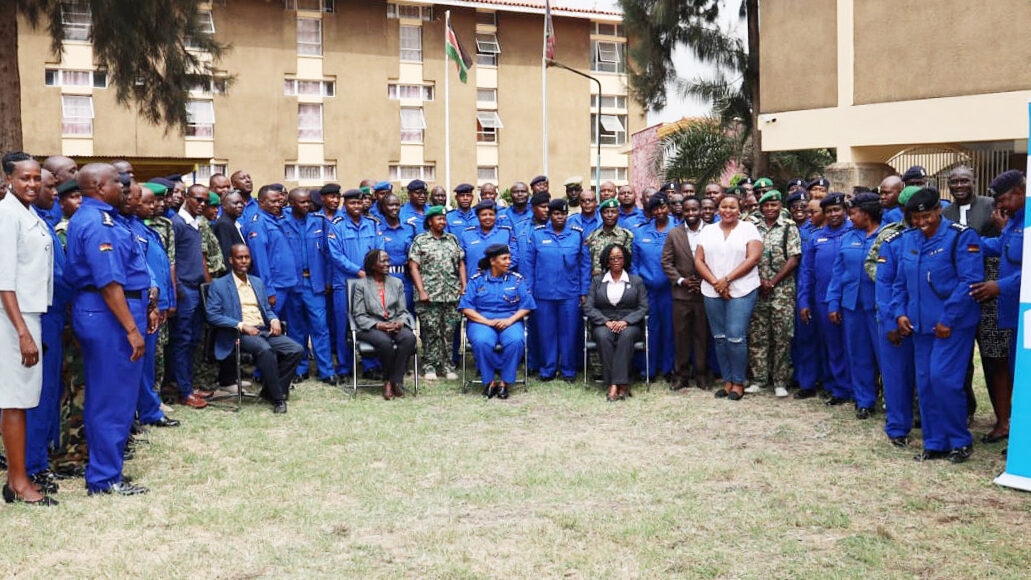IJM-developed training is credited with leading to peaceful election in Kenya
Police Abuse of Power
NAIROBI, KENYA – For years during election cycles, Kenya has experienced heightened brutality and police abuse of power. At the request of police leadership, IJM Kenya organized a training on elections management that was highly praised and eventually replicated to all police stations in the country. The result was a noteworthy outcome: zero deaths caused by police and a transfer of power that was mostly drama-free.
The overwhelming violence of Kenya’s 2007 elections saw over 1,200 Kenyans lose their lives and 300,000 people displaced. Half of the deaths were blamed on police action. It was a turning point that triggered reform, but elections continued to be marked by death and police brutality. Samantha Pendo, a six-month-old baby who was critically injured in a police raid during the 2017 presidential election, became the heartbreaking face of the tragedy inflicted by police abuse of power.
IJM Kenya is committed to holding police accountable for police abuse of power and working with the authorities responsible for police oversight. As a trusted and established partner, IJM held a meeting with police leadership to discuss training that could help reduce abuses by officers to reduce deaths and brutality during the election season. Following the meeting, IJM was asked by the police to train senior police officers and station commanders on how to handle the public in a humane way during elections.
Widespread training leads to widespread praise
Preceding Kenya’s August 2022 election, IJM organized a week-long training for 135 sub-county police and station commanders on elections management at the Directorate of Criminal Investigations Academy in Nairobi. The training covered topics such as lessons learned from previous elections, police accountability, crowd control, and sexual and gender-based violence, all of which were factors in the violence during and after the 2017 elections. IJM involved trainers from different partners including Kenya’s Independent Policing Oversight Authority (IPOA), the Kenya National Commission on Human Rights, and police officers. IJM also supported the printing of 7,000 informational booklets about election management that the police published. The copies were given to all attendees for distribution to officers at their stations.
The Kenyan media covered the training, leading to widespread praise for police officers for preparing for elections. Following the success of this initial training, several partners joined in to support similar training across the country, and 1,100 police commanders were trained. The training was replicated in all stations within the country, with media covering the training and the police themselves promoting it. Before the election, media reports of police officers preaching peace in the streets became common.
The outcome of this cascade of trainings speaks volumes. Despite it being a hard-fought campaign and a razor-thin victory by the winning candidate William Ruto, the transfer of power was largely peaceful. There were no deaths caused by police, and only nine cases of police misconduct were reported by IPOA during the elections.
The National Police Service of Kenya has publicly credited the trainings with helping to lead to a peaceful election
The police were well prepared to handle violence in a professional and humane way with the intention of de-escalating violence, even when tensions rose when election results were delayed. In one example, a video emerged of a trained senior police officer having a discussion with a youth about the need to be peaceful, instead of the police resorting to a more violent method of crowd suppression. A peaceful end came to what might have previously led to bloodshed and death.
In an op-ed for the Washington Post, Benson Shamala, Director of IJM Kenya, pointed out that a key component to the milestone of peaceful elections was the Kenyan government’s increasing intolerance of abuses by police. Shamala said, “Professional and accountable police underpin democratic institutions, including elections.”